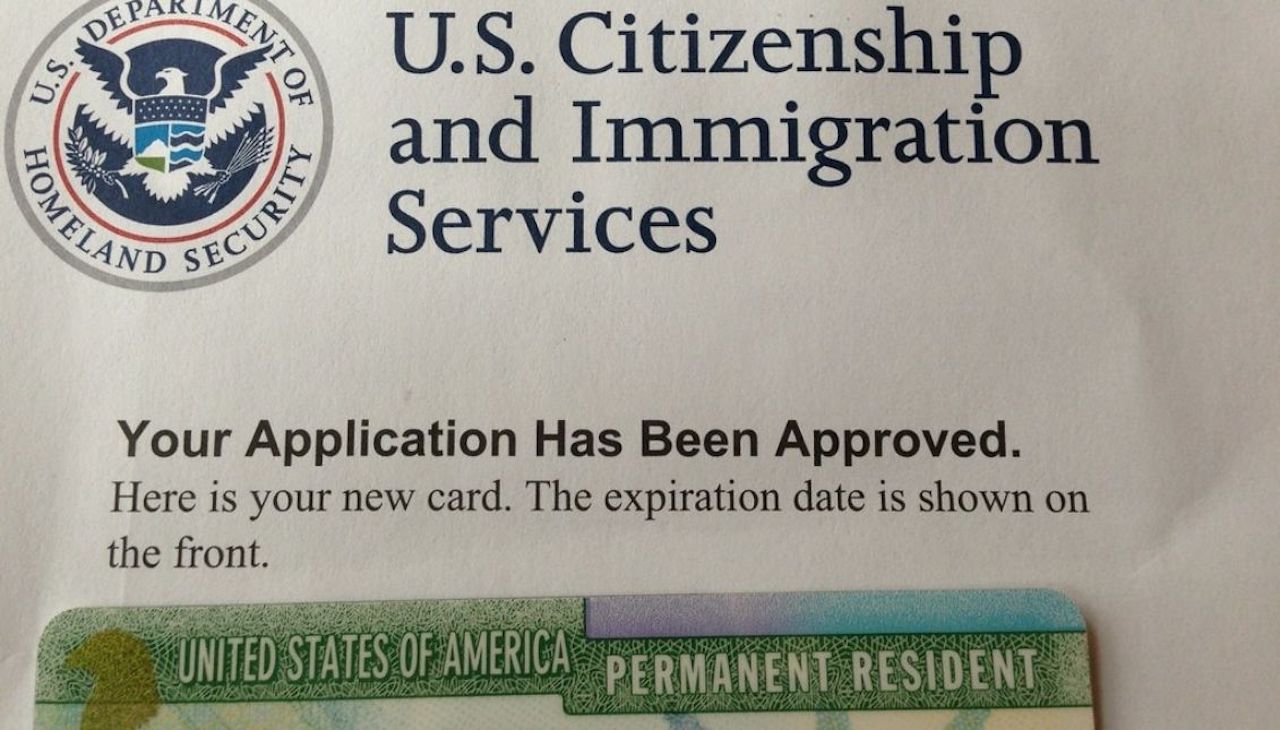
New changes to the US citizenship test could make it harder for applicants with low English skills
US authorities announced last December the test would be updated after 15 years. Immigrants and advocates fear the new format will hurt low English speakers.
The U.S. naturalization test, a monthslong process that requires years of legal permanent residency before applying and one of the last hurdles to obtain citizenship, is being updated.
But immigrants and advocates fear the first changes to the test in over 15-years will hurt test-takers with lower levels of English proficiency.
U.S. authorities announced the update last December with the new version expected in late 2024.
USCIS in their announcement said that the proposed changes “reflect current best practices in test design” and would help standardize the citizenship test.
Over 1 million people became U.S. citizens in fiscal year 2022, becoming one of the highest numbers on record since 1907, the earliest year with available data. USCIS also drastically reduced the large backlog of naturalization applications by over 60% compared to the year before, according to a USCIS report also released in December.
According to the U.S. Citizenship and Immigration Services, the new test adds a speaking section to evaluate English skills. An officer would show photos of regular daily activities, weather or food and ask the applicant to verbally describe the photos.
In the current version, an officer evaluates English skills during the naturalization interview by asking personal questions answered already in the naturalization paperwork done prior.
Heaven Mehreta, an immigrant from Ethiopia, passed the naturalization test in May and became a U.S. citizen in Minnesota in June. In an interview with the Associated Press, she learned English as an adult after moving to the U.S. over 10-years ago and found pronunciation to be a tough hurdle to overcome.
She thinks that the new speaking section based on photos will increase test difficulty for others in similar situations.
Under federal law, most applicants seeking citizenship must demonstrate an understanding of the English language in the form of spoken word, reading, writing, and demonstrate knowledge of U.S. history and government.
According to Sara Goodman, a political science professor at the University of California, Irvine, the U.S. currently has the easiest citizenship test compared to other countries including Germany, Canada and the United Kingdom.
Another proposed change would change the civics section on U.S. history and government from oral short-answers to multiple-choice.
A current civics question includes asking the applicant to name a war fought by the U.S. in the 1900s, in which saying any one out of five acceptable answers — World War I, World War II, Korean War, Vietnam War or Gulf War — are needed to get the question right.
According to Bill Bliss, a citizenship textbook author in Massachusetts, under the proposed multiple-choice format, the applicant would be asked the same question but would have to choose the correct answer from the following choices in multiple choice form. It becomes more difficult as it would require a higher level of history and English proficiency.
A. Civil War
B. Mexican-American War
C. Korean War
RELATED CONTENT
D. Spanish-American War
Currently, six out of 10 civics questions are needed to pass. The 10 questions are selected from a large pool consisting of over 100 civics questions. What 10 questions will ultimately be selected for the test is not revealed but applicants can see and study the 100 questions prior to testing.
Lynne Weintraub, a citizenship coordinator at Jones Library’s English as a Second Language Center in Massachusetts, told the AP the proposed changes for the civics section could make the citizenship test harder for those who struggle with English literacy including refugees, elderly immigrants and people with disabilities.
“We have a lot of students that are refugees, and they’re coming from war-torn countries where maybe they didn’t have a chance to complete school or even go to school,” said Mechelle Perrott, a citizenship coordinator at San Diego Community College District’s College of Continuing Education in California.
“It’s more difficult learning to read and write if you don’t know how to do that in your first language. That’s my main concern about the multiple-choice test; it’s a lot of reading,” Perrott said.
Roughly 96% of applicants pass the test currently, according to recent estimates.
The former Donald Trump Administration changed the test during his Presidency in which it increased the scrutiny of applicants, increasing the overall process time and difficulty.
However, the rate stayed around 90%, as the fundamental rules for those who qualify for citizenship did not change.
President Biden during his second month in office signed an executive order that ordered the Department of Homeland Security revoke some of the Trump-era rules, and reverted back to the 2008 version.
According to the agency, they will conduct a nationwide trial of the proposed changes in 2023 with opportunities for public feedback.
“USCIS will conduct the trial with volunteer community-based organizations (CBOs) that work with immigrant English language learners and lawful permanent residents (LPRs) preparing for naturalization,” the agency said in their December announcement.
Afterwards, an external group of experts in language acquisition, civics and test development will look at the results of the trial and recommend the best ways to implement the proposed changes.











LEAVE A COMMENT: